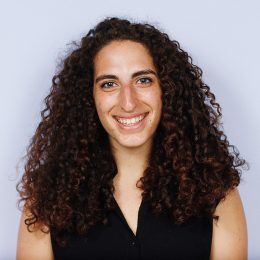
When I first heard about Colin Kaepernick’s statement in regards to his decision to sit during the national anthem, I applauded him. I found beauty in his decision to protest an anthem that is seemingly spreading false hope. Although, after being challenged by a friend, I questioned, will his statement help make a change?
In pondering this question, I thought back to a college interview I had in my senior year of high school. I met a kind lady outside of a Starbucks where we would discuss my vision of my future for the next hour. She asked, “What do you want to do with your future?” I simply said, “Frankly, I don’t know. I apologize, because all I really know is that I want to help my community in some shape or form, but what that shape or form is, is still unclear”. Needless to say, she did not like that answer. Luckily, the chumps at Binghamton University did.
I envisioned college as a place to learn about where I can make the greatest influence — while learning about myself and ensuring my own happiness. Yet, as I sat in my introduction to women, gender and sexuality studies class, I began to lose that motivation.
Discussions in regards to hate crimes, outliers and policy-making became daily conversations which invoked many emotions in me. I began to think, in light of the pervasiveness of these problems, how will I be capable of helping communities in need? What can I give to them that will really make any difference? Is there actually a point to any of it? My original statement during my interview seemed less and less appealing.
Classes were spent understanding gender stereotypes and their influences on our society. We discussed the construct of race and the existence of a gender binary. Finally, everything I had been teaching myself was being discussed in class. While it was the first class where I felt like I was learning something, it was also the first class where I felt as though I couldn’t control my emotions.
One day, after watching a film that focused on the transgender community in Berlin, I called my sister. I explained the film to her and then just burst into tears. I told that I believed there’s no point in following the path I want to; the change I could make is barely measurable.
As a human development and womens, gender and sexuality studies major, I am privileged to be taking classes that typically focus on the social justices and injustices within our society. From adolescent development to the gaps between ethnicities and health, I have gained greater knowledge on the functionalities of the systems of the United States.
We live in a complex world filled with various intersectionalities that force many to experience discrimination from various angles. The United States is a large country filled with a diverse population who all need to be acknowledged and treated with respect and dignity, whether they are a middle school girl suffering through puberty or a father trying to support his family of three.
While “helping people” is by far one of the most naïve aspirations I have shared, it is a good start. Since that interview, I have determined that the “shape or form” through which I will help people is social work. Despite narrowing down my career field, it is still extremely difficult for me to convince myself that the impact I can make on one person is enough. However, I now see that change can really only come through a combination of bottom-up grassroots movements and action from the top-down.
Going back to Kaepernick’s decision: It might do absolutely nothing except give him some resting time. But, it also might be a small step toward broadening a very important conversation. There is in fact a point to Kaepernick’s actions, just as there is a point to whatever course my life will take, even if I end up only impacting a small section of our world.
Therefore, while I become increasingly overwhelmed by brutal news updates, disappointing statistics, confusing policies and questioning experiences, there still is a point to it all. I challenge us all to take whatever size step we can in supporting the communities that matter to us; to ensure that the point is not forgotten.
Sarah Saad is a senior double-majoring in human development and women, gender and sexuality studies.


